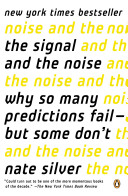The Three Phases of a Chess Game
A chess game, like everything else, has three parts: the beginning, the middle and the end. What’s a little different about chess is that each of these phases tests different intellectual and emotional skills, making the game a mental triathlon of speed, strength, and stamina.
In the beginning of a chess game the center of the board is void, with pawns, rooks, and bishops neatly aligned in the first two rows awaiting instructions from their masters. The possibilities are almost infinite. White can open the game in any of twenty different ways, and black can respond with twenty of its own moves, creating 4,000 possible sequences after the first full turn. After the second full turn, there are 71,852 possibilities; after the third, there are 9,132,484. The number of possibilities in an entire chess game, played to completion, is so large that it is a significant problem even to estimate it, but some mathematicians put the number as high as 10^10^50. These are astronomical numbers: as Diego Rasskin-Gutman has written, “There are more possible chess games than the number of atoms in the universe.”
It might seem that at the beginning of the game, when all the pieces are still on the board and the number of possibilities is most limitless, computers are at their greatest strength. As IBM’s Web site bragged before the match against Kasparov, their computer could calculate 200 million positions per second. “Incidentally, Garry Kasparov can evaluate approximately three positions per second,” it noted snidely.18 How did Kasparov have a chance?
But chess computers had long been rather poor at the opening phase of the game. Although the number of possibilities was the most limitless, the objectives were also the least clear. When there are 10^10^50 branches on the tree, calculating 3 moves per second or 200 million is about equally fruitless unless you are harnessing that power in a directed way.
Both computer and human players need to break a chess game down into intermediate goals: for instance, capturing an opponent’s pawn or putting their king into check. In the middle of the match, once the pieces are locked in combat and threaten one another, there are many such strategic objectives available. It is a matter of devising tactics to accomplish them, and forecasting which might have the most beneficial effects on the remainder of the game. The goals of the opening moves, however, are more abstract. Computers struggle with abstract and open-ended problems, whereas humans understand heuristics like “control the center of the board” and “keep your pawns organized” and can devise any number of creative ways to achieve them.
Moreover, because the opening moves are more routine to players than positions they may encounter later on, humans can rely on centuries’ worth of experience to pick the best moves. Although there are theoretically twenty moves that white might play to open the game, more than 98 percent of competitive chess games begin with one of the best four.
The problem for humans is that computer programs can systematize this knowledge by studying statistics. Chess databases contain the results of literally hundreds of thousands of games and like any other database can be mined for predictive insight. IBM’s programmers studied things like how often each sequence of opening moves had been played and how strong the players were who played them, as well as how often each series of moves resulted in wins, losses, and draws for their respective sides.20 The computer’s heuristics for analyzing these statistics could potentially put it on a level playing field with human intuition and experience, if not well ahead of it. “Kasparov isn’t playing a computer, he’s playing the ghosts of grandmasters past,” IBM’s Web site said in reference to Deep Blue’s deep databases.
Notes:
And how computers do in processing them versus a human's intuition.
Folksonomies: artificial intelligence computers chess
Taxonomies:
/hobbies and interests/games/chess (0.648167)
/business and industrial/company/earnings (0.278179)
/sports/golf (0.266587)
Keywords:
chess game (0.905424 (negative:-0.402448)), entire chess game (0.507846 (neutral:0.000000)), Web site (0.489402 (positive:0.297355)), opening moves (0.484024 (neutral:0.000000)), possible chess games (0.479657 (neutral:0.000000)), competitive chess games (0.446700 (positive:0.430611)), level playing field (0.441353 (neutral:0.000000)), possibilities (0.384584 (negative:-0.423516)), best moves (0.358570 (positive:0.675009)), Garry Kasparov (0.352024 (neutral:0.000000)), number (0.347870 (negative:-0.032446)), phases tests (0.327289 (negative:-0.216181)), mental triathlon (0.325964 (negative:-0.202074)), emotional skills (0.323444 (negative:-0.216181)), chess computers (0.310171 (negative:-0.700507)), Diego Rasskin-Gutman (0.308875 (neutral:0.000000)), opening phase (0.305105 (negative:-0.700507)), possible sequences (0.302758 (neutral:0.000000)), astronomical numbers (0.302491 (neutral:0.000000)), Chess databases (0.301083 (positive:0.393058)), different ways (0.299994 (neutral:0.000000)), significant problem (0.298009 (neutral:0.000000)), open-ended problems (0.297521 (negative:-0.476180)), beneficial effects (0.293623 (neutral:0.000000)), greatest strength (0.293040 (neutral:0.000000)), human intuition (0.288013 (neutral:0.000000)), predictive insight (0.286832 (positive:0.393058)), strategic objectives (0.286780 (neutral:0.000000)), intermediate goals (0.286553 (negative:-0.461598)), creative ways (0.284496 (positive:0.391070))
Entities:
Chess:Sport (0.740723 (positive:0.430611)), Garry Kasparov:Person (0.714949 (neutral:0.000000)), IBM:Company (0.491640 (positive:0.297355)), Web site:FieldTerminology (0.387796 (positive:0.297355)), Diego Rasskin-Gutman:Person (0.336098 (neutral:0.000000)), White:Person (0.334917 (neutral:0.000000)), 98 percent:Quantity (0.334917 (neutral:0.000000))
Concepts:
Chess (0.960095): dbpedia | freebase | opencyc
Garry Kasparov (0.526192): website | dbpedia | freebase | opencyc | yago
Algorithm (0.518174): dbpedia | freebase | opencyc
FIDE (0.474473): website | dbpedia | freebase
Chess opening (0.445524): dbpedia | freebase
Vladimir Kramnik (0.437395): website | dbpedia | freebase | yago
Mathematics (0.431845): dbpedia | freebase | opencyc





